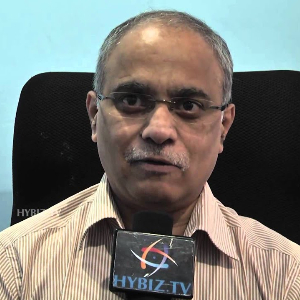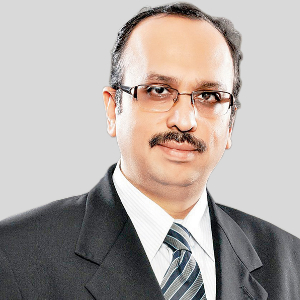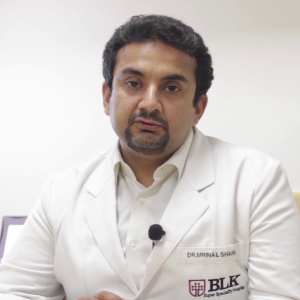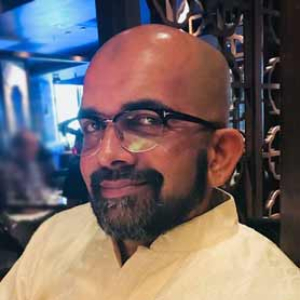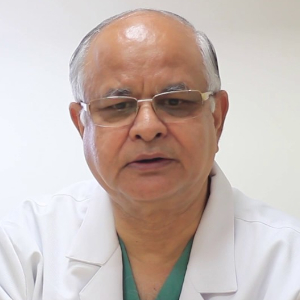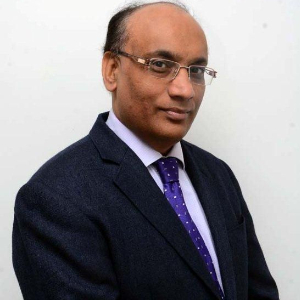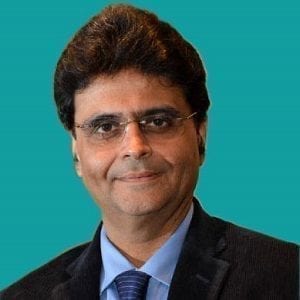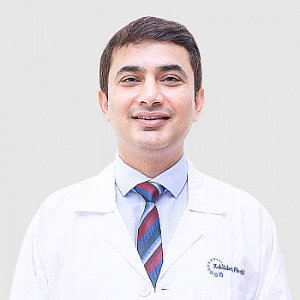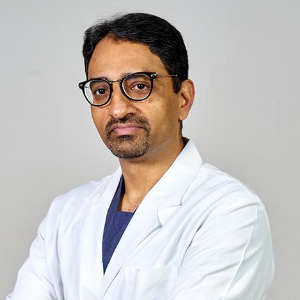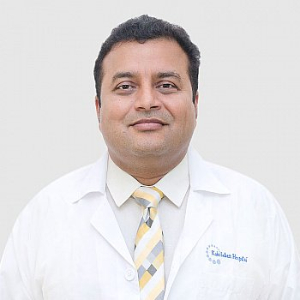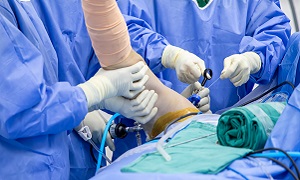Best Doctors in India for Shoulder Arthroscopy
- Orthopedic Surgeon, Hyderabad, India
- Over 30 years’ experience
Profile Highlights:
- Dr. J V S Vidya Sagar is a renowned Orthopedic Surgeon and one of the most experienced surgeons for Arthroscopy in India.
- Dr. Vidya Sagar has been performing Arthroscopic and Joint Replacement surgeries for over 30 years during which he has performed 31,500 Arthroscopies, 13,400 joint replacement surgeries, 27, 600 knee joint surgeries, and 20,800 surgeries for ligament reconstruction, and over 38,600 surgeries for cerebral palsy and polio.
- Orthopedic Surgeon, Mumbai, India
- Over 25 years’ experience
Profile Highlights:
- Dr. Kaushal Malhan is a renowned Orthopedic Surgeon in Mumbai with expertise in hip and knee replacement surgery and regional resurfacing.
- Dr. Kaushal Malhan’s name has been recorded in the Limca Book of Records for his innovative Tissue Preserving Total Knee Replacement Technique that helps in reducing post-operative recovery time.
- Dr. Malhan pioneered computer-assisted joint replacement surgery in India and is the first orthopedic surgeon to perform gender-specific computer-assisted and minimally invasive knee replacement.
- Orthopedic Surgeon, New Delhi, India
- Over 20 years’ experience
Profile Highlights:
- Dr. Mrinal Sharma is a highly renowned Orthopedic Surgeon and Joint Replacement Specialist with a specialization in Arthroplasty.
- Dr. Mrinal Sharma holds with him an experience of more than a decade and has achieved huge success with joint replacement procedures, especially of the knee, during his career.
- He is among the new generation of Orthopedic surgeons who use Computer Navigated techniques for performing knee and hip replacement surgeries.
- Orthopedic Surgeon, Mumbai, India
- Over 20 years’ experience
Profile Highlights:
- Dr. Murali Poduval is a well-known Orthopedic surgeon in Mumbai with a specialization in Joint Replacement surgeries.
- He holds an extensive experience of close to 2 decades in Orthopedics and Joint replacement surgery and is an expert in the management and treatment of deformity correction, arthroplasty, and complex trauma.
- He is highly skilled in performing all types of primary and revision surgeries on the hip, knee, and spine. His primary interest also includes hip arthroplasty for severe defects in children and adolescents.
- Orthopedic Surgeon & Spine Surgeon, New Delhi, India
- Over 40 years’ experience
Profile Highlights:
- Dr. Pradeep Sharma is the Director of the BLK-Max Centre for Orthopedics, Joint Reconstruction, and Spine Surgery in Delhi.
- Dr. Pradeep Sharma has an experience of 40+ years in the field and is an expert in the treatment of both adult and pediatric patients.
- Dr. Pradeep Sharma runs arthroplasty Fellowships supported by Zimmer and Stryker and has trained and mentored young surgeons in Arthroplasty.
- Orthopedic Surgeon, Kolkata, India
- Over 30 years’ experience
Profile Highlights:
- Dr. Rakesh Rajput is the Director and HOD – Orthopedics at The Calcutta Medical Research Institute (CMRI), Kolkata.
- Dr. Rakesh Rajput’s expertise lies in Joint replacement surgeries for the knee and hip, Arthroscopy, and Pelvic and Ace tabular trauma. He is also highly skilled in Minimally invasive orthopedic surgeries.
- Dr. Rakesh Rajput received his training in Joint replacement procedure from the prestigious University of Dundee and has worked and trained under some of the best orthopedic surgeons in the world.
- Orthopedic Surgeon & Spine Surgeon, Mumbai, India
- Over 25 years’ experience
Profile Highlights:
- Dr. Ram Chaddha is a specialist Spine Surgeon in Mumbai with expertise in the management and treatment of all kinds of spinal disorders for over 25 years.
- Dr. Chaddha is trained in Minimally Invasive Spine Surgery and is also among the few surgeons in India to hold expertise in Minimally Invasive Cosmetic Spine Surgery.
- Dr. Ram Chaddha spent a considerable number of years training undergraduate and postgraduate students and has also been an examiner for such courses at Mumbai University.
- Orthopedic Surgeon, Mumbai, India
- Over 24 years’ experience
Profile Highlights:
- Dr. Shreyash Gajjar is one of the most accomplished Arthroscopic and Sports Orthopedic surgeons in India and has performed more than 3000 surgeries of which more than 2500 included arthroscopic surgeries.
- Dr. Shreyash Gajjar is the first orthopedic surgeon in India to perform several first surgeries with the use of arthroscopic procedures.
- Dr. Shreyash Gajjar received his training in Arthroscopy, Trauma, and Sports Medicine from the best orthopedic institutions and under the guidance of renowned surgeons in India, UK, and Australia.
- Orthopedic Surgeon, Gurugram, India
- Over 20 years’ experience
Profile Highlights:
- Dr. Subhash Jangid is a renowned Orthopedic Surgeon in India who performs more than 600 joint replacement surgeries annually and helps in the management of patients after such procedures.
- He played a pioneering role in establishing the first Bone Bank in India at the All India Institute of Medical Science in 2002.
- He has been associated with several other prestigious hospitals both in India and abroad and has also been a Visiting faculty at Nnamdi Azikiwe University Teaching Hospital in Nigeria where he trains young surgeons in Arthroplasty.
- Orthopedic Surgeon and Spine Surgeon, Mumbai, India
- Over 20 years’ experience
Profile Highlights:
- Dr. Vishal Peshattiwar is a leading Spine Surgeon in Mumbai specializing in Minimally Invasive Spine Surgeries (MISS)
- He has an experience of more than 2 decades in spine surgery and holds the credit of performing over 4000 spinal surgeries to
- He is the first in India to use the MISS technique on a patient with liver failure and Tuberculosis.
- Dr. Vishal Peshattiwar’s most notable case till date was performing a Revision Spine Surgery through MISS on the oldest patient in India.
Best Hospitals in India for Shoulder Arthroscopy
Paras Hospital, Gurugram
- City: Gurugram, India
Hospital Highlights:
- Paras hospital was established in 2006 and is the 250 bedded flagship hospital of Paras Healthcare.
- The is supported by a team of doctors of international and national repute.
- The hospital is NABH accredited and also the first hospital in the region to have a NABL accredited laboratory.
- The hospital provides specialty medical services in around 55 departments including Neurosciences, Joint Replacement, Mother & Child Care, Minimal Invasive Surgery, Gynecology and Obstetrics, Ophthalmology, Dermatology, Endocrinology, Rheumatology, Cosmetic and Plastic surgery.
- The hospital is equipped with state-of-the-art technologies.
S L Raheja Hospital, Mahim, Mumbai
- City: Mumbai, India
Hospital Highlights:
- SL Raheja hospital is a 140-bed multi-specialty tertiary care hospital that is being managed by Fortis Healthcare Ltd.
- The hospital is a benchmark in healthcare and medical facilities in the neighborhood of Mahim & the western suburbs.
- L.Raheja Hospital, Mahim has one of the most effective ICU and Casualty care services.
- The hospital provides specialty medical services in Cardiology, Oncology, Neurology, Orthopedics, Mother & Child Care, and in Diabetes.
Wockhardt Hospitals, Mumbai
- City: Mumbai, India
Hospital Highlights:
- Wockhardt Hospitals were established in the year 1973, originally called First Hospitals and Heart Institute.
- Wockhardt Hospitals are super specialty health care networks in India, nurtured by Wockhardt Ltd, India’s 5th largest Pharmaceutical and Healthcare company.
- Wockhardt Hospitals is associated with Partners Harvard Medical International, an international arm of Harvard Medical School, USA.
- Wockhardt Heart Hospital performed India’s first endoscopic heart surgery.
- The hospital has a state-of-the-art infrastructure equipped with the latest technologies and modern equipment.
- It has special Centers of Excellence dedicated to the major specialties to provide hassle-free and high-quality clinical care.
Pushpawati Singhania Hospital & Research Institute, New Delhi
- City: New Delhi, India
Hospital Highlights:
- Established in 1996, Pushpawati Singhania Research Institute is one of the top hospitals in the NCR region, as well as one of the top facilities in India for gastroenterology. The hospital is one of South Asia’s first institutes in medical and surgical treatment for diseases related to digestion.
- The hospital is equipped with state-of-the art facilities coupled with the latest equipment as well as renowned consultants from various parts of India as well as other parts of the world.
Indian Spinal Injuries Center, New Delhi, India
- City: New Delhi, India
Hospital Highlights:
- The Indian Spinal Injuries Center (ISIC), provides state-of-the-art facilities for the management of all types of spinal ailments.
- Staffed with internationally trained, acclaimed, and dedicated spine surgeons, the hospital provides cutting-edge medical & surgical technology. The hospital provides comprehensive management of spinal injury, back pain, spinal deformities, tumors, osteoporosis, etc.
- The hospital performs motion-preserving spine surgeries including disc replacement and dynamic fixation, and minimally invasive spine surgeries such as endoscopic disc excision.
- The orthopedic service of the hospital covers all orthopedic ailments including trauma, joint diseases & replacements, oncology, pediatric orthopedics & upper limb ailment.
W Pratiksha Hospital, Gurgaon
- City: Gurugram, India
Hospital Highlights:
- W Pratiksha Hospital, Gurugram, is one of the best hospitals in the NCR region. It is also a top hospital in India for IVF. Since its inception, the hospital has performed over 5500 successful IVFs. The hospital also specializes in gynecology.
- With over 20 years of experience in providing quality healthcare, the hospital is known as one of the most trusted and valued health providers in India.
- Equipped with world-class medical facilities and advanced technology, the hospital’s doctors and clinicians also have a track record of delivering excellent results. The hospital is also known for focusing on preventive well-being as much as on curative treatment.
- The hospital has earned the trust of its patients, by providing the best available treatments at affordable costs.
Narayana Superspeciality Hospital, Gurugram
- City: Gurugram, India
Hospital Highlights:
- Situated near DLF Cyber City, Gurugram, Narayana Superspecialty Hospital is one of the top medical facilities in the Delhi NCR region, catering to the needs of the people. Known for its commitment to quality medical care and patient service, the hospital is a state-of-the-art facility with planned and well-equipped sections, which includes a spacious OPD area as well as comfortable patient rooms.
- It is the closest super-specialty hospital from Indira Gandhi International Airport towards Gurugram, and also the nearest super specialty hospital from DLF Cyber City. It is also close to major residential areas in Gurugram.
- It is part of the renowned Narayana Health Group. Established in 2000, by Dr. Devi Shetty, a renowned cardiac surgeon, it has grown to be one fo India’s leading healthcare groups.
Sir Ganga Ram Hospital, New Delhi
- City: New Delhi, India
Hospital Highlights:
- Sir Ganga Ram Hospital, New Delhi is known to provide the latest medical procedures with the latest technology in all of its units.
- The hospital has a team of reputed doctors, nurses, and healthcare professionals that ensure that patients receive quality care at affordable costs.
- Staffed with a team of highly qualified doctors, dedicated nurses, and paramedical and non-medical staff, the hospital aims to lead in healthcare delivery, medical education, training, and research.
- As per the vision of the founder, the hospital also provides free treatment to the economically weaker sections of society.
- Sir Ganga Ram Hospital also provides training to young doctors under the Diplomate in National Board(DNB) program. The DNB program at the hospital was started in 1984 and it is known for currently running the maximum number of DNB specialties in the country. It also has the distinction of having the first bone bank in India.
CK Birla Hospital, Gurugram
- City: Gurugram, India
Hospital Highlights:
- The CK Birla Hospital in Gurugram is a NABH-accredited multi-specialty hospital.
- The hospital strives to increase the quality of healthcare by focusing on UK NHS nurse and midwife training requirements. Policies and practices derived from the National Institute for Health and Treatment Excellence (NICE) recommendations in the United Kingdom ensuring that a strong focus on safety, high-quality clinical care, and sanitation is maintained.
- The hospital’s cutting-edge technology and facilities allow for real-time communication and seamless collaboration among caregivers, ensuring accuracy and the best possible results. Those with foreign experience and accreditations make up part of the hospital’s team of clinicians.
KIMS Hospital, Hyderabad
- City: Hyderabad, India
Hospital Highlights:
- KIMS Hospital (a brand name of Krishna Institute of Medical Sciences) is one of the largest and best multi-speciality hospitals in Hyderabad. The hospital provides various treatments to an enormous number of patients.
- The hospital has a capacity of more than 3000 beds. KIMS Hospitals offers different healthcare services in more than 25 specialities and super specialities.
- The hospital is equipped with modern medical equipment and technology. It has robotic equipment to provide minimal invasive techniques for patients.
- The hospital is aimed at providing world-class healthcare facilities and services at an affordable cost for patients.
- The various specialities and departments of the hospital include neurosciences, gastroenterology & hepatology, robotic science, reproductive sciences, dental science, oncological sciences, organ transplantation, heart and lung transplantation and mother and child care.
Shoulder Arthroscopy
Shoulder arthroscopy is a surgical procedure that uses a small camera known as an arthroscope. This camera helps to examine or repair the tissues inside or around the shoulder joint. The arthroscope is inserted through a small incision in your skin.
Since the arthroscope and the surgical instruments are quite thin, this makes the surgery possible through the use of small incisions, rather than the use of larger incisions which were needed for standard, open surgery. This results in lesser pain for patients and it also shortens the recovery time and return to regular activities. This technique has been performed since the 1970s and it has made the diagnosis, treatment, and recovery from surgery faster and easier.
Purpose
The procedure can be performed for multiple reasons:
- A torn or damaged cartilage ring or ligaments
- A torn or damaged biceps tendon
- A torn rotator cuff
- Shoulder instability, in which the shoulder joint becomes loose and slides around too much or becomes dislocated
- A bone spur or inflammation around the rotator cuff
- Inflammation or damaged lining of the joint, often caused by an ailment such as rheumatoid arthritis
- Loose tissue that needs to be removed
- Shoulder impingement syndrome, to make more room for the shoulder to move around
- Arthritis of the end of the clavicle
Preparation
Before your procedure, let your doctor know about what kind of medications you might be taking. This can include supplements or herbs.
For two weeks before the procedure, it is likely that you will need to stop taking blood thinners. If you are suffering from heart disease, diabetes, or any such medical conditions, then your surgeon might want to see the doctor treating you for these conditions.
If you drink too much alcohol, inform your surgeon. If you smoke, it is important to stop at least two weeks before the procedure. Smoking can interfere with wound and bone healing.
If you get the flu, fever, herpes, or any other illness, before the surgery, you need to inform your doctor before the surgery.
On the day of the surgery, you might be asked to fast for around eight hours before the surgery. Make sure that you arrive at the hospital or surgery center on time. You might also receive a few medications which you are to take with a little water.
Procedure
Once you are in the operating room, you are going to be positioned so that your surgeon is able to easily adjust the arthroscope, for having a clear view of the inside of the shoulder. You might be positioned in a beach-chair position, or may be asked to lie on your side. Each position has its own advantage. Your surgeon will select the position based on their training as well as the procedure.
After being positioned, your surgical team will be removing any hair if required. An antiseptic solution might next be spread to clean the skin. Your forearm might also be kept in a holding device to ensure that it stays still.
Next, your surgeon might inject fluid into the shoulder in order to inflate the joint. This will make it easier for him/her to see the structures of your shoulder through the arthroscope. Next, your surgeon will be making a tiny puncture in your shoulder, which is going to be around the size of a buttonhole, for inserting the arthroscope. The fluid will flow through the arthroscope so that the view remains clear and any bleeding is controlled. Images from the arthroscope are then projected on the video screen, and they will show the surgeon the inside of your shoulder as well as any damage.
Once your surgeon is able to identify the problem, other small instruments will be inserted through separate incisions for treating it. In most cases, special devices are used for anchoring stitches into bone. Any damaged tissues will be repaired.
After the surgeon performs all necessary repairs, the incisions will be closed with stitches and will be covered with a dressing. Generally, most surgeons take pictures from the video monitor during the procedure to show you their findings and the repairs that were made.
In some cases, open surgery might be required if the surgeon sees that there is a lot of damage. If open surgery is performed, you will have a large incision, so that your surgeon is able to operate directly on your bones and tissues.
Recovery
After you are discharged from the hospital, make sure you follow your doctor’s instructions for self-care.
Complete recovery can take between 1 to 6 months. You might need to wear a sling for the first week. If a lot of repairs were done, you might need to wear them even longer.
You can also take pain medications if you experience a lot of pain.
You can choose to undergo physical therapy as these will help you regain motion and strength in your shoulder. The length of the therapy can vary, depending on the procedure that was performed.
Since all patients have different health conditions, recovery time varies for every patient. If you had a minor repair, then you might need a sling, and your strength should return after a short period of time.
Risks
Few risks that are associated with this procedure include:
- Shoulder stiffness
- The repair failing to heal
- Failure of the surgery to relieve symptoms
- The weakness of the shoulder
- Damage to the cartilage of the shoulder
- Blood vessel or nerve injury
- Allergic reaction to anaesthesia
- Breathing problems
- Blood clots or infection

